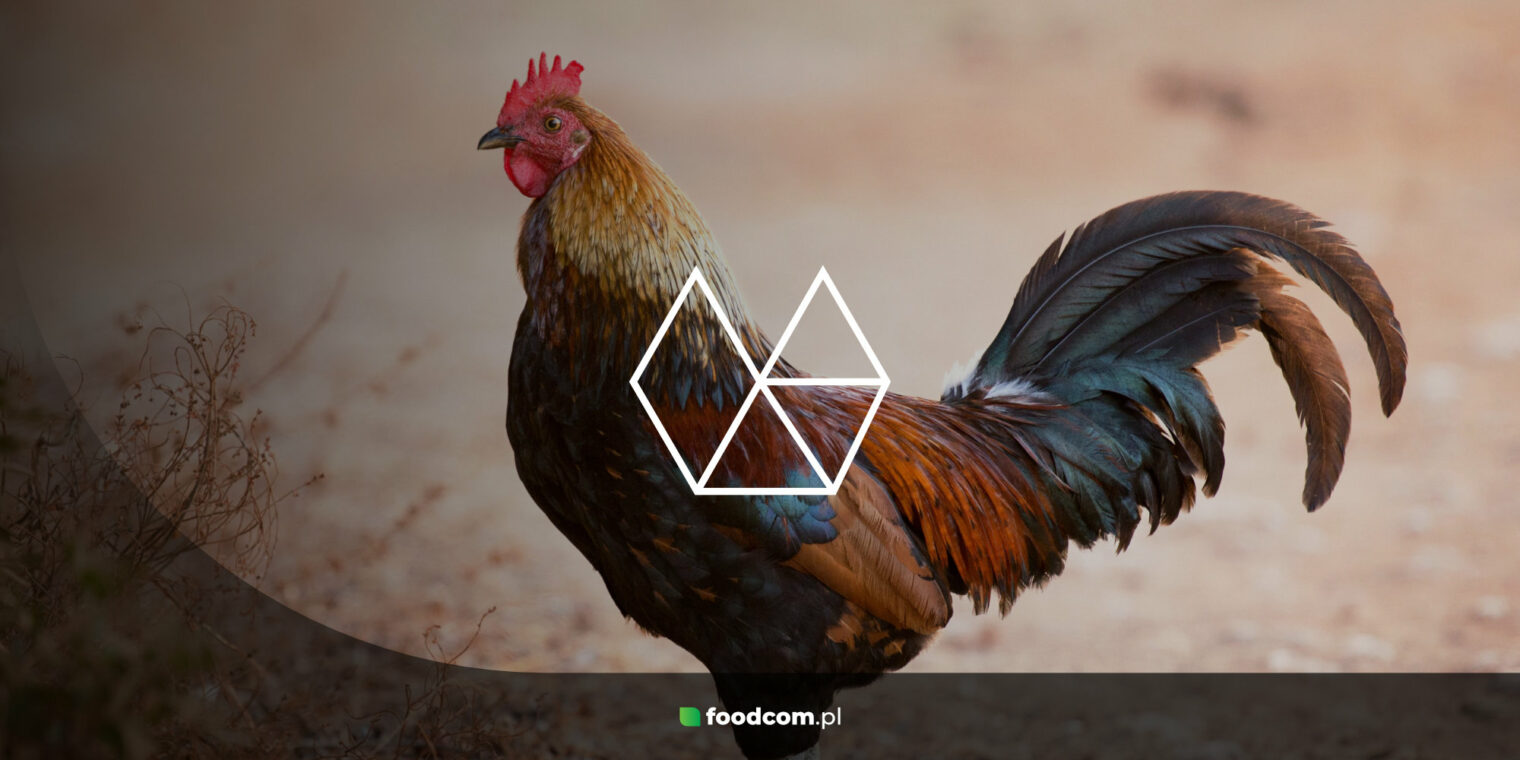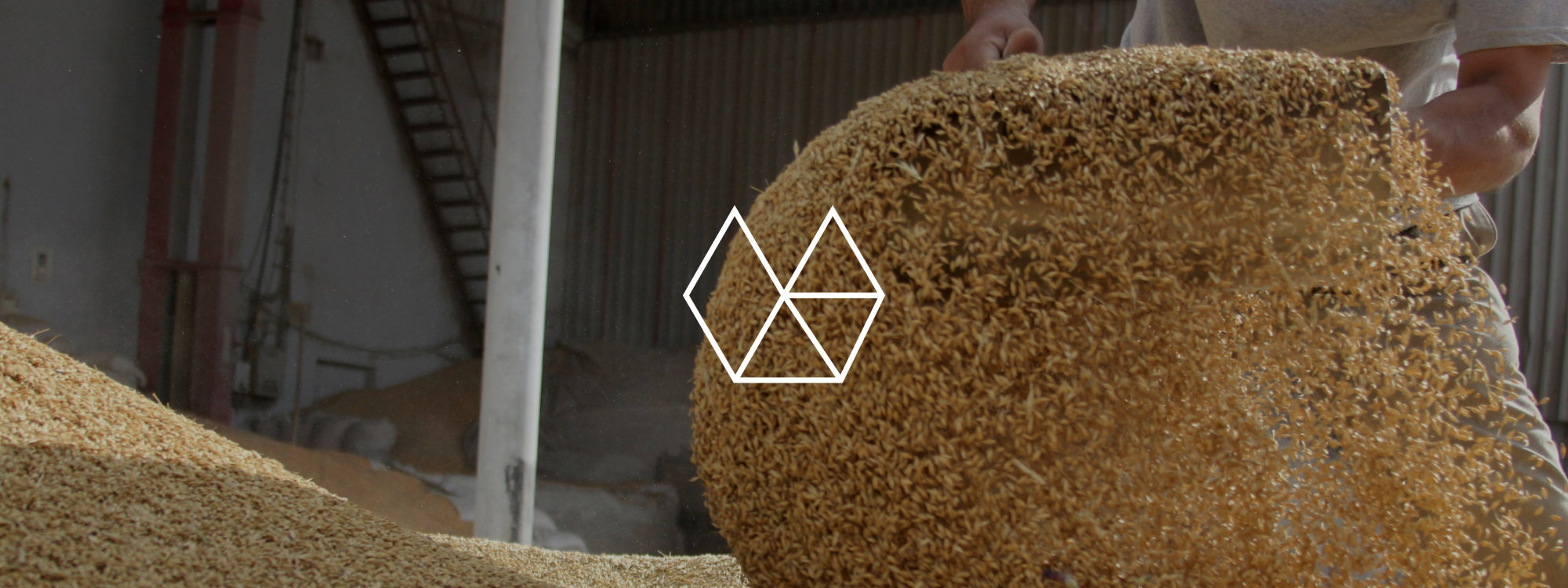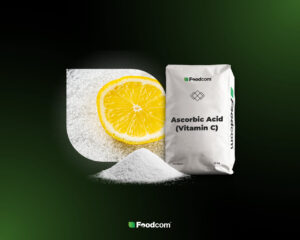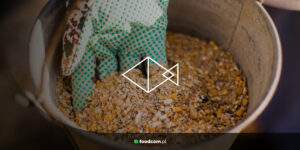- Vitamins are essential micronutrients for animal nutrition, supporting metabolic processes, growth, health, and fertility.
- Animal diets often require vitamin supplementation due to inadequate levels in their usual diet or inability to synthesize certain vitamins.
- Fat-soluble vitamins (A, D, E, and K) are stored in the liver, kidneys, brain, fat, and muscle tissue, while water-soluble vitamins (C and B group) are excreted from the organism in a few days.
We present to you our Foodcom guide to animal nutrition focusing on feed supplementation with vitamins A, B, C, D, E, and K. Find out the benefits of each vitamin and learn how its usage can improve the performance of the livestock.
The role of vitamins in animal nutrition
Just like in human nutrition, animal diets require a set of nutritional components necessary for the proper functioning of the organism. One segment of these components is vitamins, classified as micronutrients.
Vitamins have the following functions in animal nutrition:
- influence on the proper functioning of metabolic processes,
- influence on life expectancy and meat quality,
- lower stress levels,
- support intestinal health and the immune system,
- control animal performance.
Vitamins are essential for the proper execution of different metabolic processes including tissue and bone growth, health maintenance, animal performance, and fertility. Moreover, vitamins can increase the animals’ life span, productivity, and meat quality. They can also help to decline stress levels, improve gut health, and strengthen the immune system, thus decreasing the need for antibiotics use.
In many cases, the animal organism is unable to synthesize some vitamins, or its usual diet does not provide the necessary levels of this nutrient and therefore vitamin supplementation is required. The recommended levels of a given vitamin are defined by various factors including animal species, age, function, and expected productivity. By reinforcing animal forage with the right complex of vitamins, farmers can better control the health and performance of their livestock.
Solubility of Vitamins
Vitamins A, D, E, and K are classified as fat-soluble micronutrients which are composed of carbon, oxygen, and hydrogen. These vitamins are susceptible to deterioration by external factors including heat, oxidation, and enzymes. Within the organism, they are absorbed together with fats and their storage takes place mainly in the liver, kidneys, brain as well as fat and muscle tissue.
On the other hand, vitamin C and vitamins of group B including B1, B2, B6, and B12 are water-soluble and function as coenzymes with specific roles in metabolic processes. The synthesis of the B group vitamins takes place in the animal’s intestinal tract. Water-soluble vitamins are generally excreted from the organism in a few days.
Vitamins in Animal Nutrition
Vitamin A
Vitamin A plays a key role in the organism’s immunity system and health maintenance. It is responsible for the development and correct functioning of skin and mucosa tissues that serve as a stopping barrier for unwanted pathogens such as bacteria, viruses, and toxins from entering the system. Vitamin A also promotes fertility by synthesizing the responsible hormones in the ovaries, improving ovulation, and enhancing embryonic development. In poultry diets, vitamin A is particularly important for proper animal growth, bone development, and egg production performance. In aquaculture, it enhances fish growth and ensures correct pigmentation. In swine and ruminant nutrition, it decreases the risk of vision deficiency and night-blindness.
Vitamin B1
Vitamin B1 is involved in the metabolism of carbohydrates, particularly in the transformation of glucose into energy. High levels of this vitamin ensure enhanced animal performance and reduce the risk of anorexia, weight loss, weakness, and improper growth.
Vitamin B2
Vitamin B2, also known as riboflavin, promotes energy production and manages the proper metabolic reactions involving carbohydrates, fats, and proteins. It ensures the efficient intake of nutritional components such as amino acids, fatty acids, iron, zinc, and calcium. Vitamin B2 also reduces the risk of anorexia and impaired growth, particularly in pets and fish nutrition.
Vitamin B4 (Choline Chloride)
Vitamin B4, also known as Choline Chloride, is an essential component of animal nutrition and is added to feed because it plays an important role in preventing diseases such as perosis and liver enlargement in birds. Choline supplementation effectively prevents abnormal fat storage in the liver and promotes healthy metabolism and efficient utilization of nutrients. In addition, choline supports nervous system function. However, it is important to adjust the amount of supplementation to the species and weight of the animal to avoid excess, which can be harmful.
Vitamin B6
Vitamin B6 is an important factor in metabolic processes involving amino acids, fats, and carbohydrates. It also plays an essential role in the synthesis of RNA and DNA. Vitamin B6 supplementation allows for enhanced energy production and the integrity of the immune system. It benefits the proper animal growth, feed consumption, and improved hatchability in poultry while reducing the risk of blood disorders and skin ailments.
Vitamin B12
Vitamin B12, also known as cobalamin, is directly involved in the metabolism of nucleic acids, fats, and carbohydrates. It also enhances the synthesis of red blood cells and methionine. It is stored in the animal’s liver from where it is released and used when needed. Vitamin B12 is produced in the presence of cobalt mineral and the two components are co-existent. Any deficiency of vitamin B12 is a result of cobalt deficiency. In swine nutrition, vitamin B1 supplementation reduces the risk of anemia, dermatitis, and growth retardation. In a poultry diet, this vitamin increases the hatching rate of eggs and improves animal growth.
Vitamin C
Vitamin C occurs in oxidized form or reduced form as L-ascorbic acid. It is highly susceptible to destruction, primarily by light and heat. Most farming animals can synthesize vitamin C in their organisms, which is stored within organs such as adrenal glands, pancreas, skeletal muscle, brain, and liver. The vitamin is sourced from typical forage mixes, but its synthesis is reduced under stressful conditions. Vitamin C is responsible for the biosynthesis of collagen, absorption of minerals, and stimulation of the immune system. It is also involved in wound healing and facilitates stress adaptation. In ruminants, vitamin C deficiency is frequent, especially in the first stage of their lives and therefore supplementation is recommended. In a swine diet, insufficient vitamin C levels may result in weakness, fatigue, and bone pain. For poultry, vitamin C supplementation is advised to enhance growth rate, egg production, and fertility.
Vitamin D3
Vitamin D3 is synthesized in the skin of pigs, poultry, and swine through the action of direct UV rays. In other terms, Vitamin D3 deficiency is usually caused by limited access to direct sunlight, frequently occurring in intensive farming facilities. This micro-nutrient is responsible for calcium management within the organism, including the absorption from the intestine, calcium synthesis, and regulation of calcification of bones. In swine nutrition, dietary requirements for Vitamin D3 supplementation depend on the ratio of calcium to phosphorus, as they are closely linked to the absorption of the vitamin. Ruminants have a higher Vitamin D3 requirement than other animals. In a poultry diet, Vitamin D3 supplementation is recommended for improved bone growth and egg quality.
Vitamin E
Vitamin E is a fat-soluble micronutrient and one of the most potent biological antioxidants. This vitamin plays a major role in stimulating the immune system of the animal and protecting the organism from diseases and infections. It is also responsible for regulating DNA synthesis and gene expression. Moreover, vitamin E is involved in maintaining the functionality of the reproductive organs and protecting the tissues. In a swine diet, vitamin E supplementation is advised for young piglets in order to enhance their immune response and to decrease the risk of antioxidant abnormalities in pigs cultivated in highly stressful conditions. In poultry nutrition, vitamin E maintains correct hatchability levels and reduces potential muscular dystrophy risk. In cattle diets, vitamin E improves meat quality, pregnancy rates, and stress-resistance in dairy heifers.
Vitamin K3
Vitamin K3, also known as menadione, is absent from natural feeds. It is used in the animal feed industry in the form of water-soluble salts to provide adequate levels of vitamin K. In a swine diet, vitamin K is used to improve animal performance and to reduce the risk of hemorrhage, lesions, and anemia. Poultry animals have limited availability to synthesize vitamin K in the intestinal tract, therefore its supplementation is recommended to enhance chick health and bone strength.
Discover how Foodcom S.A. can help your business profitability
Feed-grade vitamins offer a wide range of benefits for livestock cultivation. Our Foodcom team of Sales Support and Traders is here to advise you on exploring the possibilities of supplementing the animal feeds with our highest quality vitamin in order to improve the performance of your livestock and enhance the profitability of your business.









